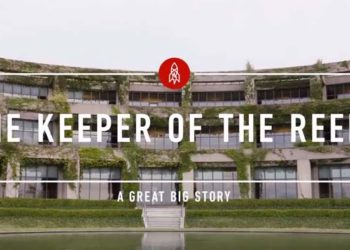At the beginning of the 20th Century, Edward Forbes, Director of Harvard’s Fogg Art Museum was trying to figure out how to preserve the early Italian paintings he had begun to collect. To do so, he needed to understand how these paintings were made and the properties of the materials used. Thus began The Forbes Pigment Collection at the Straus Center for Conservation and Technical Studies. The collection includes more than 2,500 different samples, ranging from “Mummy Brown” (made from ground up Egyptian mummies) to Vanta Black, which uses nanotubes to produce a particularly black shade.
These pigment samples are used for restoration and analysis of artworks, and are made publicly available to researchers throughout the world. They’re also important for detecting fraud — in 2007 the collection was used to analyze a set of controversial Jackson Pollock paintings. The artist died in 1956, yet pigments were found in the paintings that were not invented until the 1980s.
A video tour of the collection can be found below.



